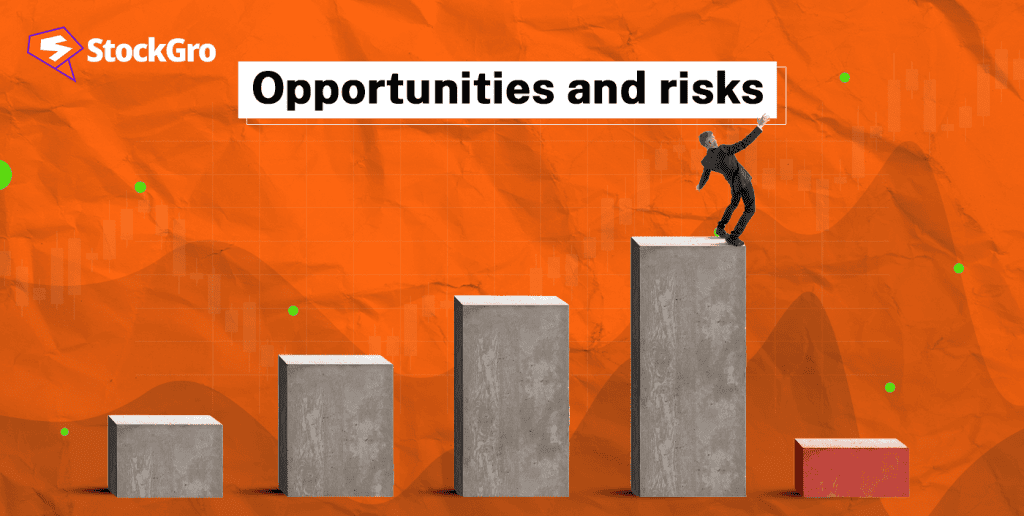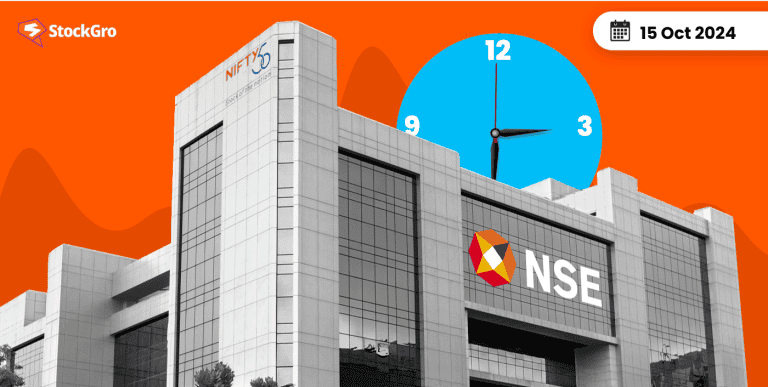
Investing in emerging economies has become an integral tactic for worldwide investors looking for solid growth potential. Often defined by fast industrialisation, rising middle classes, and increasing urbanisation, these economies offer special prospects not matched by developed markets.
The dynamic economic environments of emerging markets attract people. For instance, the International Monetary Fund (IMF) projects that major developing countries will be more crucial in promoting world economic growth in the future. India’s economy alone, for example, is expected to climb at a rate of 7.2% in 2024, thereby ranking it among the fastest-growing economies worldwide.
Driven by technology breakthroughs and a young, aspirational workforce, countries including India, Brazil, and Indonesia are undergoing significant economic transformation. These countries provide a rich ground for investors wishing to profit from sectors including technology, infrastructure, and consumer products as they keep developing.
This article will investigate the profitable prospects and possible hazards of investing in developing countries, therefore offering ideas and techniques to enable you to negotiate this interesting but difficult terrain.
You may also like: India’s GDP growth surges to 7.8% in Q4FY24: Key takeaways
What are developing economies?
Emerging markets, sometimes referred to as developing economies, are countries with social or corporate activity fast moving from traditional traditions to industrialised and sophisticated economic systems. These markets are distinguished by their extraordinary capacity for economic development and growing impact on the world economy.
Characteristics of developing economies:
- Rapid economic growth: The GDP growth rates of emerging markets are usually higher than those of developed economies. Many elements, including rising industrial output, technology developments, and foreign investment, are driving this explosive expansion. For example, India is among the fastest-growing economies in the world, expected to rise to 7.2% in 2024.
- Increasing industrialisation and urbanisation: Often in the process of great industrialisation and urbanisation are developing nations. This change from agricultural-based economies to industrial and service-based ones generates fresh employment possibilities, infrastructural development, and general economic growth. With about 87% of its population living in urban areas, Brazil, for instance, has undergone notable urban expansion.
- Growing consumer base: A rising consumer base is one of the main characteristics of rising markets. Rising wages and better living standards help to drive demand for products and services. For companies and investors, this generates lots of chances. With a combined disposable income of 13.3 trillion renminbi, the upper middle class in China is predicted to exceed 520 million individuals by 2025, hence fuelling spending development in many different sectors.
Also Read: International Monetary Fund: Navigating the Global Economy
Opportunities to invest in developing economies
Investing in emerging economies offers an abundance of exciting prospects, which attracts investors seeking to leverage good values, diversification, and fast growth.
High growth potential
The great potential for growth these emerging markets have is one of the most convincing arguments for investing in equities from there. Often surpassing the rates of growth in wealthy nations, these markets are seeing fast-paced economic development.
Young demographics, a growing middle class, and increasing disposable expenditures are among the main forces behind this change. Demand for goods and services rises as more people move into the middle class, hence driving corporate expansion and raising firm profits.
For example, with their highest young population of approximately 66%, India is likely to experience steady economic growth for decades to come, which offers a rich environment for emerging market equities to perform well over the long run.
You may also like: India’s GDP growth surges to 8.4% in Q3: Key takeaways
Market diversification
The chance for market diversity is yet another major benefit of investing in developing countries. Unlike established markets, these economies can follow different economic cycles, which generally helps to lower portfolio volatility.
For instance, while developed economies could experience stagnation or slow development, developing economies can be in a phase of fast expansion, therefore offsetting the performance of a portfolio mainly composed of assets from developed markets.
Investors can build a more robust portfolio that more successfully withstands world economic swings by distributing investments throughout established and emerging markets.
Also read: Diversification: Why it is important for your portfolio
Attractive valuations
Often found at more appealing values than their developed market equivalents, emerging market stocks and equities are As these markets develop, investors can thus perhaps buy shares at reduced price-to-earnings (P/E) ratios, hence increasing chances for long-term capital appreciation.
For instance, the MSCI Emerging Markets Index has an average P/E ratio of about 20.18 as of Sept 30, 2024, whereas the MSCI World Index’s P/E ratio is 22.66, suggesting maybe undervalued prospects.
When you compare the valuation measures of companies in developed markets like the United States or Europe with those in developing markets like Brazil or South Africa, for example, you will often find that the latter are priced more affordably, reflecting their growth potential and the relative risks connected with their economies.
You may also read: How the 2024 budget will transform economy and stock market – Key Insights!
Increasing foreign direct investment (FDI) in emerging economies
FDI, or foreign direct investment, has been a big part of economic growth in developing economies. This is mostly because of good government policies, infrastructure development, and market opportunities.
Along with efforts to improve the simplicity of doing business, many developing nations have put in appealing policies meant to attract foreign investors—such as tax incentives and loosened rules. Important infrastructure expenditures including transport, energy, and telecommunications help to increase the desirability of these areas by lowering running costs and increasing market accessibility.
By generating jobs through new companies and the growth of current ones, FDI is absolutely important for local economic development. Foreign companies also bring modern technologies and managerial techniques, which increase output and creativity.
Moreover, FDI provides necessary money for local companies so they may expand internationally and diversify the economy among several industries, therefore lowering dependence on any one sector.
Also read: Foreign direct investment: What it means for investors and the country? – Learn
Risks of investing in developing economies
Although the prospects of developing countries can be alluring, one should be cognizant of the underlying hazards. Knowing these dangers facilitates wise investment decisions. The following are the main hazards connected to investing in developing countries:
- Political instability
In developing markets, political risks can have a big effect on investment results. Policy changes, political corruption, and instability among other things might produce an erratic environment for investors.
For instance, political unrest in Venezuela has brought about notable changes in economic policies, which has caused hyperinflation and general impoverishment. This volatility has discouraged outside investment and resulted in significant losses for those who stayed in the market.
Such political instability emphasises the need for investors to regularly monitor political events in their target markets since it might discourage new investment and influence the long-term growth possibilities of the economy.
- Currency volatility
For foreign investors in emerging countries, the main risk is the fluctuation or devaluation of money. The profits on overseas investments can drop dramatically when a nation’s currency loses value.
For example, the devaluation of the Argentine peso in recent times has undermined the value of assets kept in that currency. The devaluation of the peso reduced the returns seen by foreign investors, therefore influencing the general state of investment.
Furthermore, as changes in the profitability of investments in erratic ways affect financial planning, money risk can also cause uncertainty in this regard. Investors have to weigh ways to reduce this risk, including portfolio diversification or currency hedging.
- Economic vulnerabilities
Emerging markets often react more sensitively to debt crises, changes in commodity prices, and world economic events. They are susceptible to outside pressure since they lack the strength of more developed nations to withstand shocks.
For example, several developing markets suffered extreme economic downturns during the 2008 global financial crisis because they relied on external funding and commodities exports.
As nations like Brazil and South Africa’s economies contracted, unemployment rose, and social unrest resulted. This sensitivity emphasises the need to keep an eye on the world economic situation and realise how they could influence investments in underdeveloped countries.
Interesting to read: Commodity Trading
- Corporate governance and transparency issues
Emerging markets often suffer from less strong corporate governance and less solid legislative systems. These problems could lead to inadequate openness and businesses might not follow international norms.
Corporate scandals in several developing nations where inadequate governance policies resulted in large financial losses point to investor mistrust and confidence loss resulting from this.
For example, the situation of some Nigerian companies where claims of mismanagement and fraud resulted in significant stock price losses emphasises the hazards involved in investing in settings devoid of corporate governance. To reduce these risks, investors have to do extensive due research and look for businesses with good governance policies.
Also read: What does the market capitalisation to GDP ratio tell us?
Strategies for navigating opportunities and risks
Though it can be profitable, investing in developing nations needs a calculated approach to properly negotiate the inherent opportunities and risks. The following techniques let investors maximise the results of their investments in developing countries:
Diverse exposure is among the best strategies available to reduce risks in developing nations. Investors should take into account the distribution of their money around several industries and nations inside these markets. Diversification lessens the effect of localised hazards related to one economy or industry.
For example, one nation may be going through political unrest while another inside the same region is seeing strong economic development. Investors can reduce volatility and improve the general robustness of their portfolios by spreading throughout several rising economies. This approach not only helps control risks but also lets investors seize development prospects from several markets.
Navigating the inherent volatility of emerging economies calls for a long-term investment viewpoint. Political events, economic developments, or market attitudes all cause regular short-term fluctuations. Still, many developing nations, including China and India, have historically shown great long-term economic promise.
For instance, over the long run, both nations have exhibited a constantly increasing trend in their economic development and stock market performance, even if they had times of turbulence. Investors can maximise the development possibilities of these countries by emphasising long-term returns and keeping patience during market declines.
- Investing in emerging market ETFs and mutual funds
Investing in exchange-traded funds (ETFs) or mutual funds emphasising developing market equities can help retail investors seeking exposure to emerging economies. These investment vehicles give a diversified portfolio of companies, therefore lowering individual stock risk and enabling access to the growth prospects of many developing countries.
For people who might not have the knowledge or means to examine individual developing market stocks, ETFs and mutual funds especially help. Additionally, they usually provide reduced investment minimums, which might be a reasonably affordable approach to attain diversification across several sectors and nations on the scene of emerging markets.
- Monitoring global trends
Informed investing in developing countries depends on attentive observation of world trends. For these countries, elements including geopolitics, interest rates, and commodity prices can have a significant impact. Rising oil prices, for example, can help emerging nations that export oil while hurting net importers.
Tracking these trends helps investors to better predict changes in the market and make wise investing choices. Knowing how local markets are influenced by global economic dynamics helps an investor to modify their approach in reaction to different situations.
You may also like: Foreign direct investment: What it means for investors and the country?
Bottomline
Investing in emerging countries offers a special mix of possibilities and drawbacks that may greatly improve the portfolio of an investor.
Emerging markets will become ever more significant in the global economy as they develop and mature. Any diversified investment plan should take careful thought as, for investors ready to interact actively with these markets, the possibility for large returns remains great.
FAQs
What are the risks of investment in developing countries?
Investing in underdeveloped nations exposes political unrest, legal hurdles, and little market liquidity. These elements can cause unexpected policy changes that complicate investor entrance or exit from positions. While corruption and weak legal systems may provide more difficulties in guaranteeing investments and maintaining fair business practices, economic volatility and currency fluctuations might influence returns.
What are the benefits of investing in a developing economy?
Given fast industrialisation and growing consumer markets, investing in developing nations presents great development possibilities. Driven by young, expanding populations and rising urbanisation, these areas may offer pleasing returns on investment. Diversification also helps investors since emerging markets could behave differently than developed ones, therefore lowering the total portfolio risk. Government incentives and sensible policies improve investment possibilities even more.
What is the opportunity risk of investing?
In investing, opportunity risk is the possibility of loss of superior profits resulting from selecting one investment over another. It happens when money is dedicated to a specific asset, thereby perhaps losing out on more profitable possibilities. This danger emphasises the need of carefully studying every investment possibility to guarantee the selected one maximises possible profits and fits the objectives of the investor.
What is the economic risk of investing?
In investing, economic risk is the possibility of financial loss resulting from changes in the economic surroundings. This covers elements that could lower investment returns like inflation, interest rates, and economic recessions. Investors should give economic uncertainty top attention when deciding what to invest since it might cause lower business earnings, less consumer spending, and market volatility.
What are the impacts of investment on economic development?
Investment creates jobs, increases production, and stimulates innovation, hence driving economic growth. It advances infrastructure, raises standards of education and healthcare, and drives technical development. Higher economic development, better living standards, and less poverty follow from more capital inflows. Investment also attracts foreign direct investment (FDI), which through technology transfer, skill development, and global market integration speeds up development even further.

